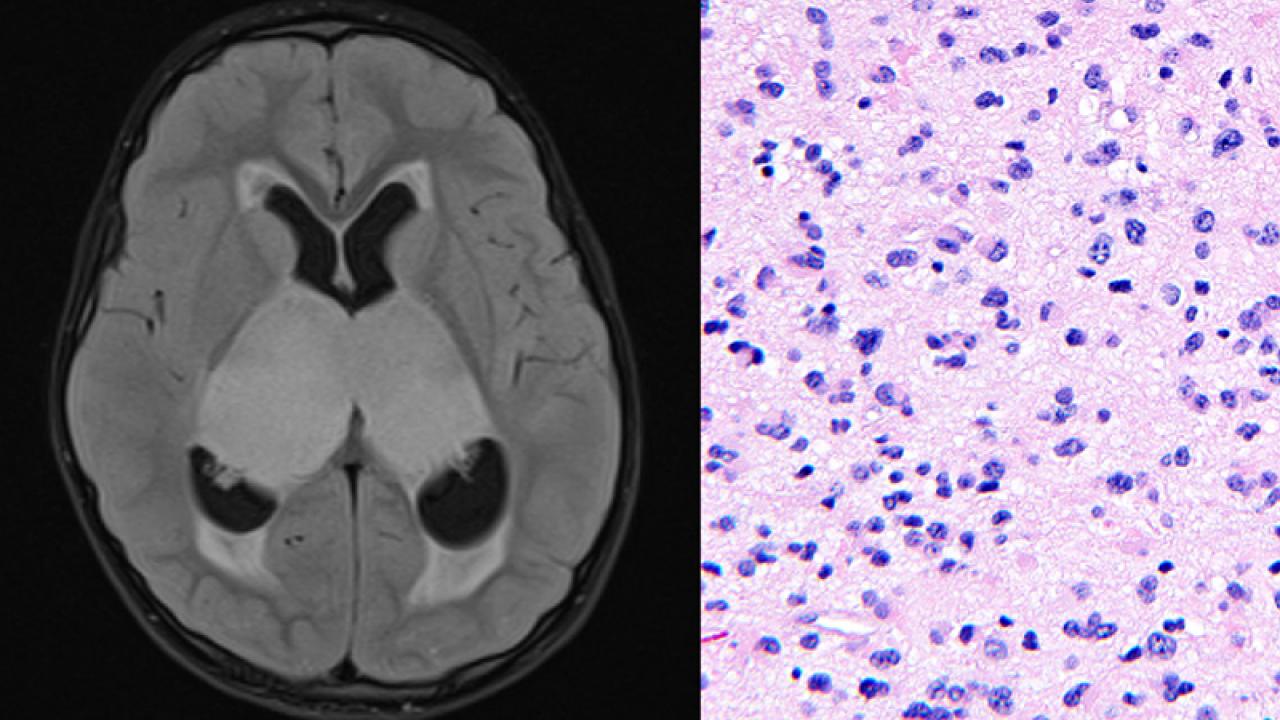
Horizontal MRI (left) and histology (right) of bithalamic glioma in a pediatric patient. Images courtesy of David Solomon.
Brain tumors are the leading cause of cancer mortality in children, several types of which still do not have an optimal therapeutic strategy. Among these are diffuse gliomas, which cannot be cured by surgical resection alone due to the way the tumor cells infiltrate throughout the neighboring brain tissue.
Bithalamic gliomas – which involve both the right and left thalamus, a midline structure of the brain – are an unresectable and uniformly lethal diffuse glioma of childhood. “Very little was known prior to our study, and no effective treatments have been described to date,” said UCSF neuropathologist and cancer researcher David Solomon, MD, PhD.
Published last week in the journal Acta Neuropathologica, Solomon and colleagues share a comprehensive genomic and epigenomic analysis of this rare tumor type, identifying gene alterations and a unique epigenetic signature that distinguish bithalamic glioma as a distinct tumor entity with potential sensitivity to a genomically-guided treatment strategy.
Genome-wide DNA methylation profiling of bithalamic glioma samples from 10 children was performed in the new UCSF Pathology Epigenomics Research Laboratory that is led by Solomon with support from the Departments of Pathology and Neurological Surgery, as well as the School of Medicine. This epigenetic analysis showed that bithalamic gliomas harbor DNA methylation patterns that are distinct from all glioma and other brain tumor types studied to date.